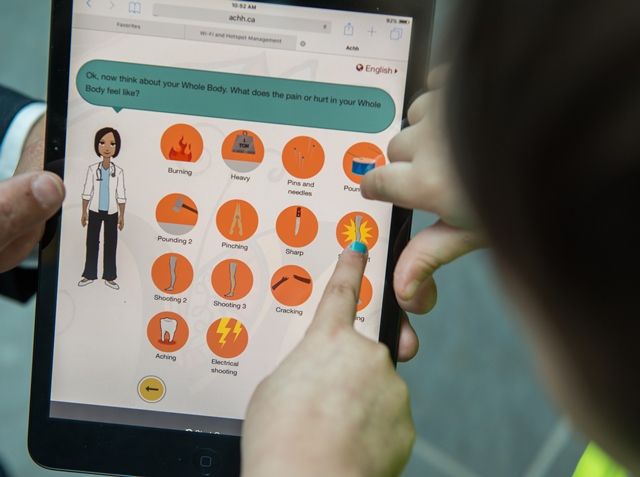Through the combined strengths of Aboriginal and Western knowledge, the Aboriginal Children’s Hurt and Healing (ACHH) Initiative was developed in the Maritimes to offer a more balanced approach to improving health encounters, reducing hurt and enriching the well-being of First Nations children.
Research shows that chronic illness in First Nations communities is almost three times what it is in the general population, and Aboriginal children have higher rates of painful conditions, more injuries, and more painful ear, dental and musculoskeletal issues. These higher rates of painful conditions impact the ability of children to grow, learn and achieve the same outcomes as other kids.
“To deliver a high level of care, you have to understand our people and our culture,” says Julie Francis, a community health nurse and ACHH Research Coordinator in the Eskasoni First Nation in Cape Breton, Nova Scotia. “We need to educate those outside of our communities so they can deliver the care that is needed most.”
The ACHH Initiative gathers and combines traditional and western knowledge to better understand how Aboriginal children’s pain is experienced, expressed, interpreted, assessed and treated. The project began in the Eskasoni First Nation and has now expanded across three provinces and four communities.
Early research findings suggest that a complex mix of factors have led to a cultural divide for First Nations children in pain and non-Aboriginal health care providers.
“If you’re not used to talking about your pain or if, within your culture, it’s better to be quiet or stoic, or endure your pain, then you’re less likely to convey that to your health professional,” says Dr. Margot Latimer. Latimer is the ACHH Initiative’s principal researcher, along with Eskasoni Health Director Sharon Rudderham and John Sylliboy, Community Research Program Coordinator. “In fact, there is no translatable word for “pain” in the Mi’kmaq language.”
Originated by Mi’kmaq Elders Albert and Murdena Marshall, the concept of ‘two-eyed seeing’, a blend of the best of Aboriginal and contemporary western understanding, is being used to recognize when Indigenous children are in pain and to help them recognize it in themselves.
One such strategy has been to enlist Mi’kmaq artist Alan Syliboy to help children and young people learn to express themselves, first through narrative, then through art. The Art Gallery of Nova Scotia helped curate the pieces that resulted from the workshops and a national tour of the exhibit is underway.
“The communication that comes from the children’s art expression is showing the research world and also the health world that we need to look beyond the physical,” says Syliboy.
Researchers are also developing an electronic, interactive way to measure pain that will be easier and more culturally relevant for Aboriginal children to use. In doctors’ offices and emergency rooms, children will be able to use an app on a tablet or smart phone to convey their hurt in a more accurate way, using methods that feel more comfortable for them.
*This article was submitted by the IWK Health Centre.




